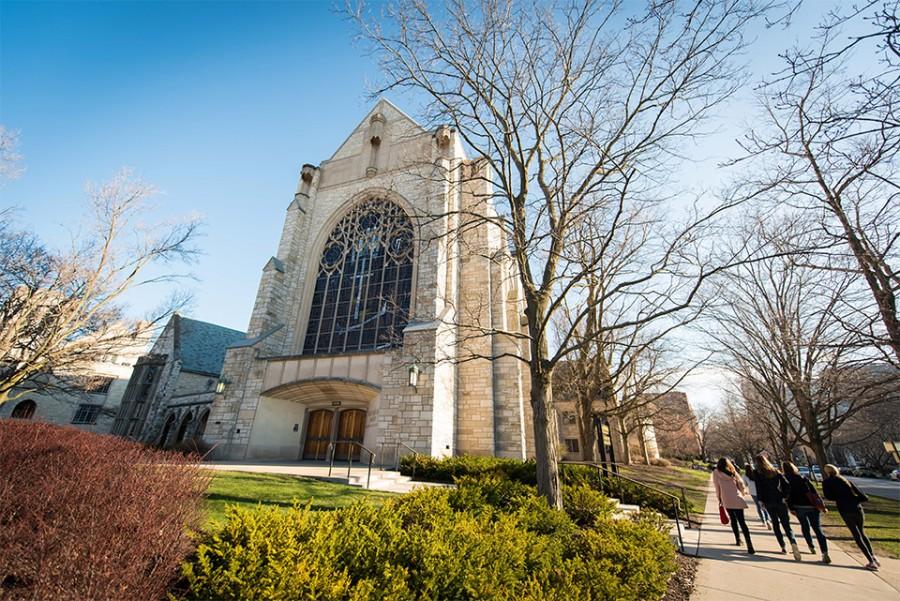Interfaith advocate Eboo Patel encourages continued work toward inclusivity following Alice Millar vandalism
Daily file photo by Daniel Tian
On Friday, Alice Millar Chapel housed a community discussion on inclusivity. More than 100 people attended the event, including Eboo Patel, president of Interfaith Youth Corps, who spoke to the importance of combating racism and hate.
April 11, 2016
Eboo Patel, an advocate for interfaith cooperation, spoke at Alice Millar Chapel on Friday about the importance of maintaining an inclusive community at Northwestern after the chapel was vandalized last month.
Two Weinberg freshman students allegedly vandalized the building with racist and homophobic graffiti March 10 and were charged with institutional vandalism, criminal damage to property and hate crime to a place of worship.
Patel, who spoke to more than 100 people, is the founder and president of Interfaith Youth Core and former adviser to President Barack Obama’s Advisory Council on Faith-Based and Neighborhood Partnerships. He drew on experiences of racism he encountered in middle school as an Indian-American and meditated on the Alice Millar incident, considering the motivations of the students allegedly responsible.
“I have to think that part of this is just that racism is an available option in the culture, and sometimes, when the defenses are down and the filters are off, you’re (choosing) that option,” he said. “You’re manifesting that cultural mutation. Is it impossible that this would have been me at 17? I’d love to say yes, but I’ve done enough dumb and hurtful things in my life to know better.”
Patel said honest dialogue can combat hate and racism, and failing to openly acknowledge these issues enables their proliferation.
“What happens when you’re silent in the face of those experiences?” he said. “Mutations turn into deformities and shadows turn into monsters.”
Patel said he is not in a position to dictate how the community should respond to the incident because he was not directly affected, but he encouraged compassion and reconciliation.
To open the gathering, Patricia Telles-Irvin, vice president for student affairs, called the vandalism “heartbreaking” and said the incident offers the University an opportunity to reassert its collective commitment to care and respect.
“We must work together to ensure that these acts do not occur again,” she said. “There is no room for this kind of hateful behavior on Northwestern’s campus.”
Tahera Ahmad, associate chaplain and director of interfaith engagement, said it took place in the chapel so the University community could jointly reflect on how important the space is.
Ahmad, who is Muslim, drew headlines last June when she wrote in a Facebook post that a United Airlines flight attendant had refused to give her an unopened can of soda because it could be used as a weapon. Before the event, she said inclusion and respect strengthen both religious life and the University as a whole.
“Bringing our communities together in this space that was vandalized allows us to foster a sense of empathy for each other and allows us to physically be in the presence of each other and supportive toward one another,” she told The Daily. “It creates a sense of unity and allows us to reflect on what it means for Northwestern to be an inclusive community.”
Due to an editing error, a previous version of this story misstated when Ahmad spoke. She spoke to The Daily in an interview before the event. The Daily regrets the error.
Email: [email protected]
Twitter: @_juliadoran


